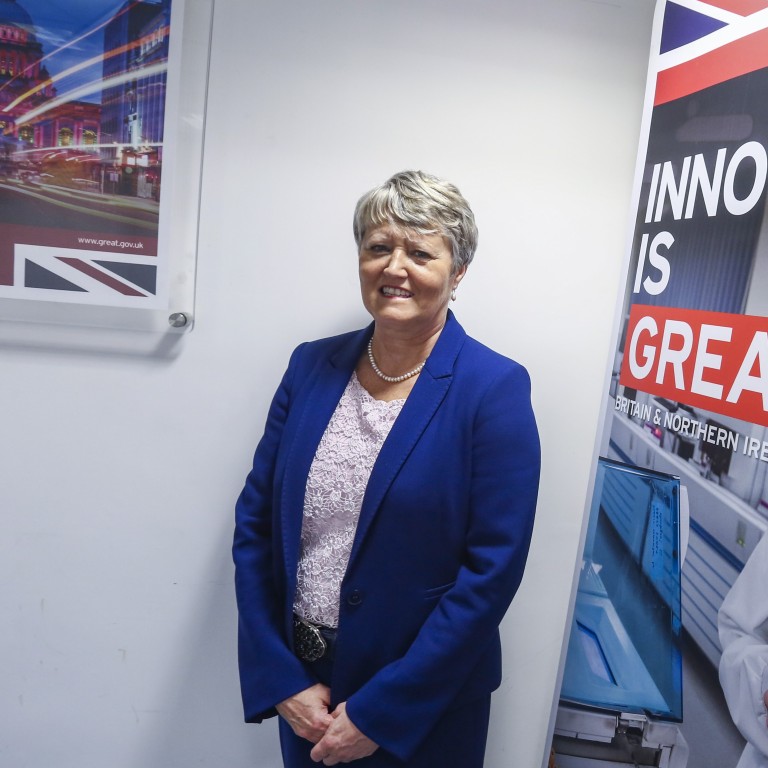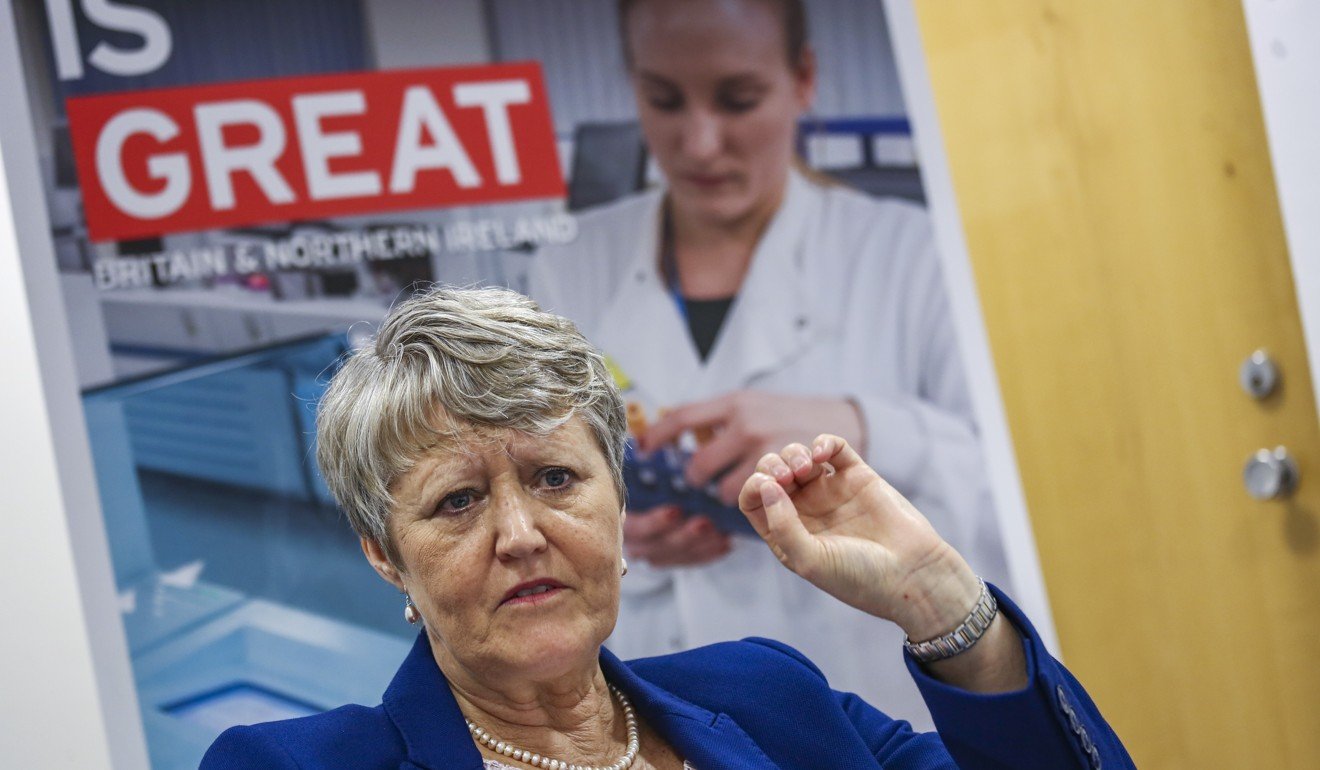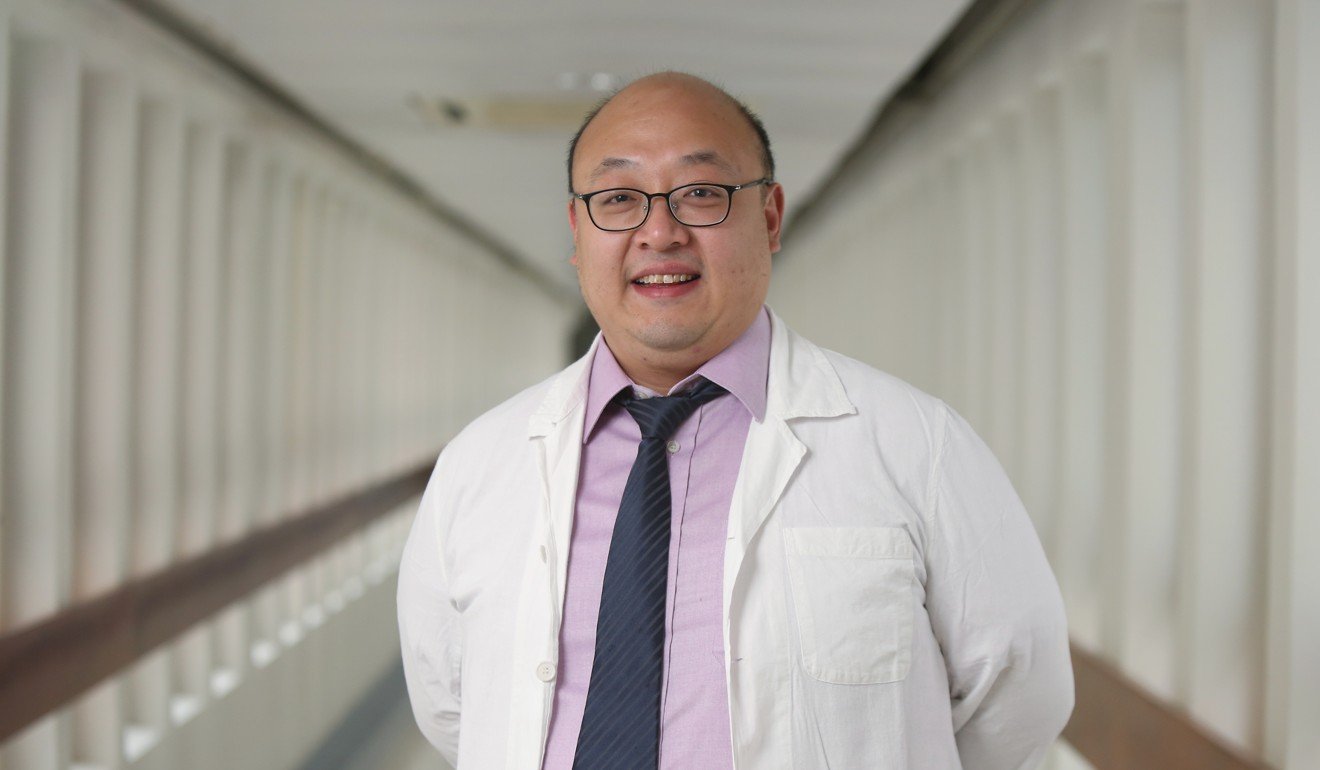
British professor says Hong Kong Genome Project to decode DNA of patients paves way for revolutionary new treatments
- Chief scientific officer from National Health Service shares country’s experience with similar scheme
- Data collected from groundbreaking project could benefit local life sciences industry and other parts of the world
A government-led genome project in Hong Kong that aims to improve treatments for patients with rare diseases and cancers could bring benefits to the city, including a boost to the life sciences industry, according to a top British health official.
Professor Sue Hill, chief scientific officer at the National Health Service in Britain, said it would be important for the public to be told as early as possible about the potential of the project, which would see tens of thousands of Hongkongers have their entire genetic codes decrypted.
“Some of the patients would get a better diagnostic outcome and also new treatments they wouldn’t have before,” said Hill, referring to some of the possible advantages brought about by the large genome sequencing project.

Hill spoke to the Post on a visit to Hong Kong earlier this month to share the experience of the 100,000 Genomes Project, which was launched in Britain in 2012.
The British project has sequenced 100,000 genomes from about 85,000 people, including patients with rare diseases, their families, and those with cancer.
Hong Kong is planning a similar scheme, as Chief Executive Carrie Lam Cheng Yuet-ngor announced in a policy address last year.
Covering patients with undiagnosed genetic disorders and cancers, as well as their families, the Hong Kong Genome Project aims to cover 20,000 cases and sequence 40,000 to 50,000 genomes.
Whole genome sequencing, a process which reveals all the information stored in a person’s DNA, would be conducted in the project.
Tens of thousands in city to have DNA sequenced in genome project
Using the data extracted from that, scientists can build a database to improve diagnoses of rare illnesses and help develop bespoke treatments.
Hill described the amount of genomes to be sequenced in the Hong Kong project as “a significant number”.
“There is a major commitment that has been made by the government here,” she said.
Drawing on experiences in Britain, she said the project would be an opportunity in Hong Kong to create a genomic research environment.
[It would] give your life sciences industry a new way of thinking about how they need to respond to this
“[It would] give your life sciences industry a new way of thinking about how they need to respond to this,” said Hill, adding that the industry in Britain was stimulated when the project there was launched.
Data collected from the project could be used in the city as well as benefit those in other parts of the world.
The professor added it was also beneficial to help Hongkongers living elsewhere “because we need to build up a database which reflects the ethnically diverse population wherever people live”.
Currently, quality genome data of the Chinese population is still lacking, when compared with the Caucasian population.
To facilitate the operation of the project, which requires the participation of patients, Hill stressed it was important to start communicating early to let the public understand the concept of genomes and what the government scheme entailed.

In Britain, efforts have been taken by health care officers to translate the complicated science into language that is easily understood by the public.
That included a dance piece commissioned by the NHS about genomics and its impact on health and illness, according to Hill.
The health care body has also designed a game, which uses plastic bricks similar to Lego, to teach young people about the science of genomics.
There have also been sessions in British pubs for researchers to introduce their work to the public.
The Food and Health Bureau said the Hong Kong Genome Institute would be set up next year to implement the local project, including preparation for recruiting patients.
A working group, which has been set up to finalise framework for the project, is expected to complete its work by the end of this year.
Dr Brian Chung Hon-yin, a specialist in clinical genetics and genomics and a member of the working group, said Hong Kong could learn from Britain in multiple areas including training of manpower.
There has been ongoing training for health care professionals in the country to prepare the talent needed for the project, as well as efforts in educating the public.
He said he hoped the institute would have a department specialising in education and promotion, to reach out to the public explaining what genetics and genomics are.

